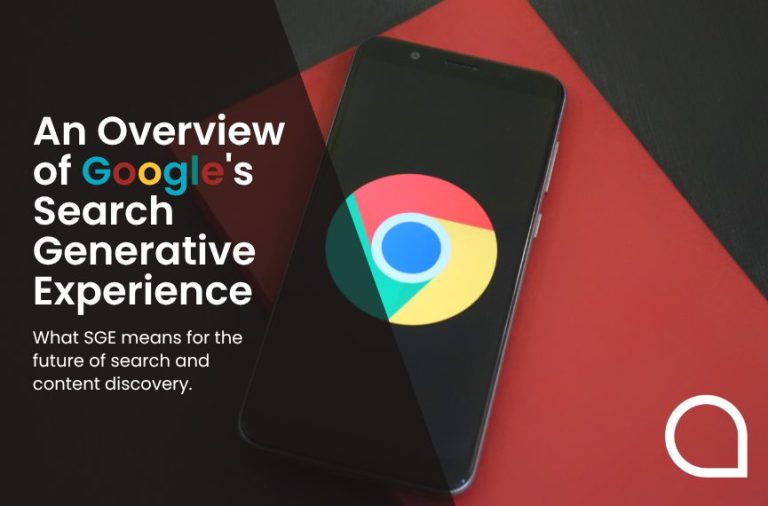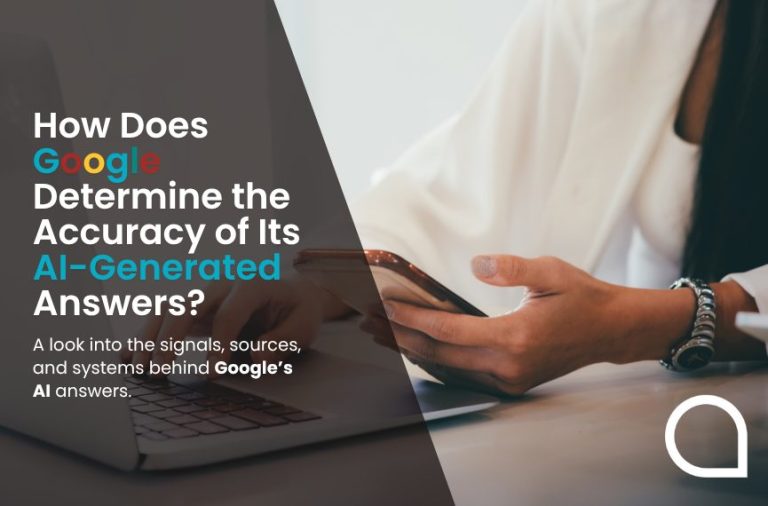This is a great question and one we’d given little thought to until a customer asked us.
Our first reaction was that it shows organic traffic, otherwise how could it show average position in search? But it got us thinking so we went off to investigate.
What we found changed our thinking about the data in the Search Console and Analytics.
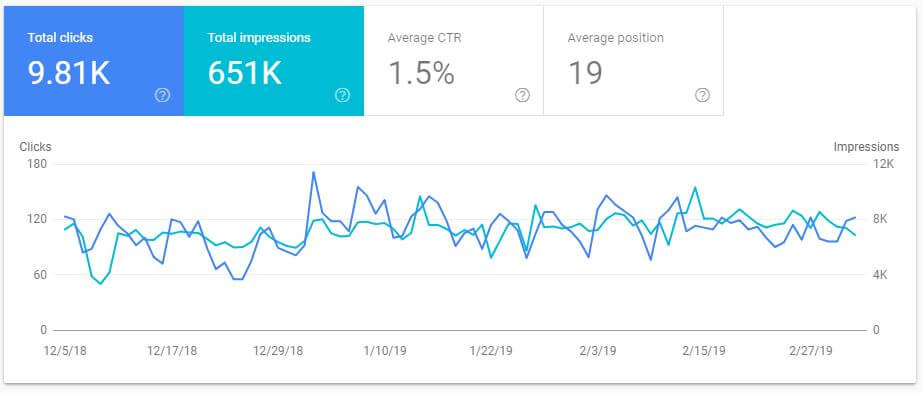
The answer is that Google Search Console shows organic data for all data sets, apart from impressions, which include data from Google Ads.
But crucially the Search Console data shown in Analytics is different from the Search Console data shown in Search Console!
The Search Console data shown in Analytics only covers Landing Pages, Countries, Devices and Queries whereas the Performance report in Search Console covers Total Clicks, Total Impressions, Average CTR and Average Position.
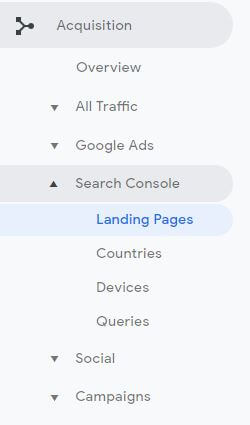
Of course you can drill down into Queries, Pages, Countries and Devices but in short, they are two different sets of data but both named Search Console!
The common feature is that they are linked through Landing Page data which Google collects.
Google covers all of this off in their Analytics Help pages but like a lot of Google’s stuff, it seems to be hidden away.
As an example, the definitions they give for the four metrics that appear on the new Search Console data within Analytics are;
- Impressions: The number of times any URL from your site appeared in search results viewed by a user, not including paid Google Ads search impressions.
- Clicks: The number of clicks on your website URLs from a Google Search results page, not including clicks on paid Google Ads search results.
- Average Position: The average ranking of your website URLs for the query or queries. For example, if your site’s URL appeared at position 3 for one query and position 7 for another query, the average position would be 5 ((3+7)/2).
- CTR: Click-through rate, calculated as Clicks / Impressions * 100.
When you look at the same four metrics in Search console however, the definition changes!
Google has helpfully tabulated this information like this:
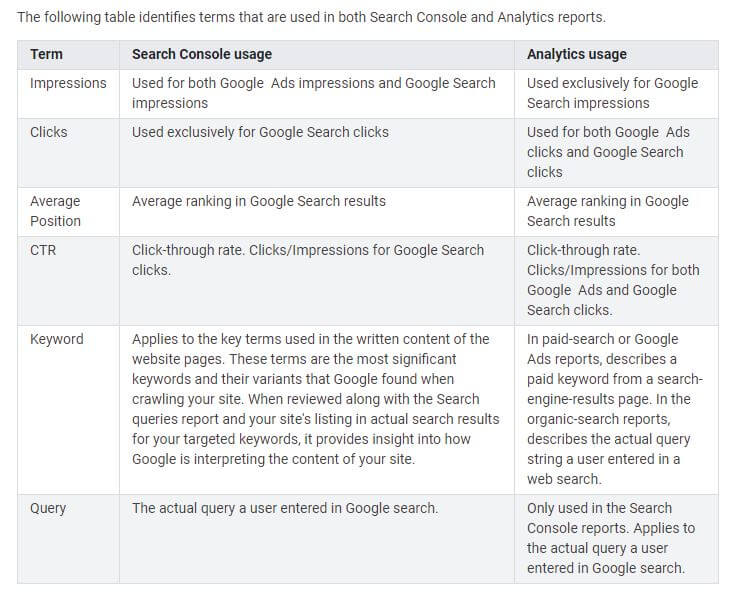
What it says is;
| Term | Search Console usage | Analytics usage |
| Impressions | Used for both Google Ads impressions and Google Search impressions | Used exclusively for Google Search impressions |
| Clicks | Used exclusively for Google Search clicks | Used for both Google Ads clicks and Google Search clicks |
| Average Position | Average ranking in Google Search results | Average ranking in Google Search results |
| CTR | Click-through rate. Clicks/Impressions for Google Search clicks. | Click-through rate. Clicks/Impressions for both Google Ads and Google Search clicks. |
| Keyword | Applies to the key terms used in the written content of the website pages. These terms are the most significant keywords and their variants that Google found when crawling your site. When reviewed along with the Search queries report and your site’s listing in actual search results for your targeted keywords, it provides insight into how Google is interpreting the content of your site. | In paid-search or Google Ads reports, describes a paid keyword from a search-engine-results page. In the organic-search reports, describes the actual query string a user entered in a web search. |
| Query | The actual query a user entered in Google search. | Only used in the Search Console reports. Applies to the actual query a user entered in Google search. |
Even though this is all neatly set out, it’s a little harder to pick apart the difference and indeed, to remember these subtle differences when looking at the data.
In the case of the customer who enquired, the same data set on Analytics and Search console varies like this;

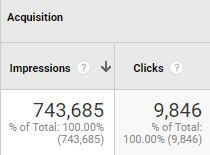
Search Console Impressions: 651,280
Analytics Impressions: 743,685
Search Console Clicks: 9,807
Analytics Clicks: 9,846
Quite a difference, particularly on the impressions which differ by over 92,000!
So, for anyone who thought this data might be interchangeable, think again.
Whilst the two data sets are linked through Landing Page data, they can show two completely different sets of results.
Updated 19/11/2020
